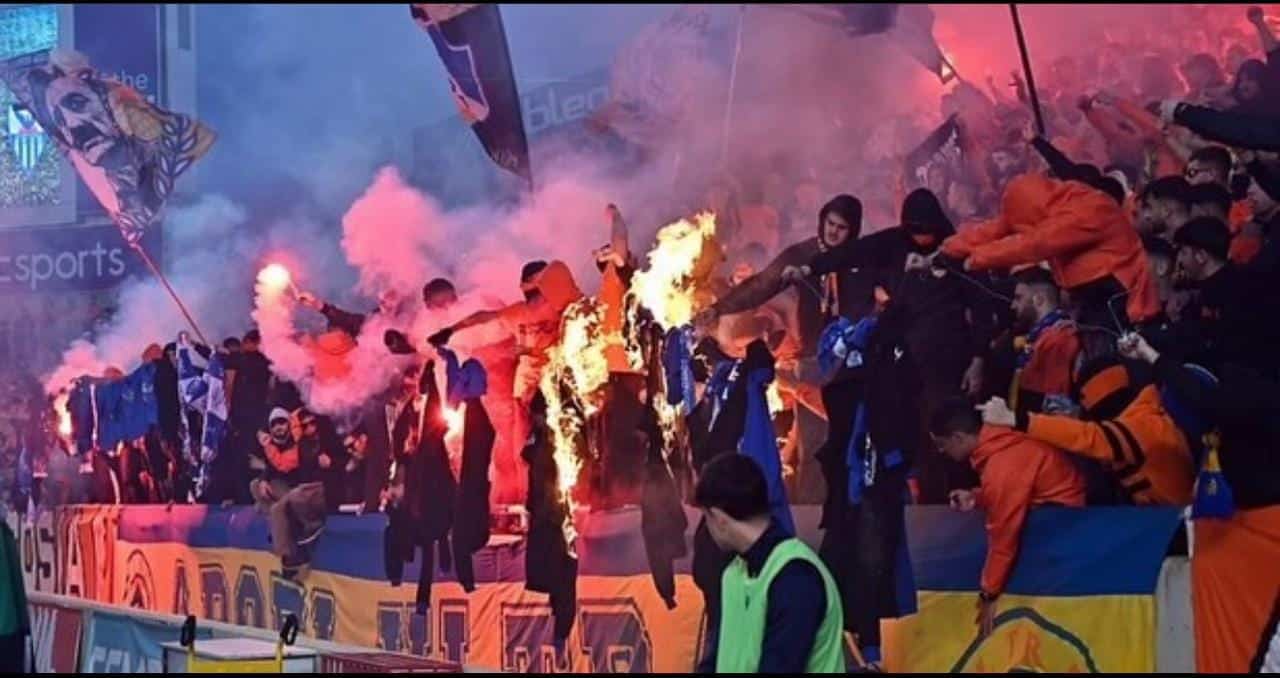The draft law prepared by the government, to deal with crowd violence, and sent to the legislature marked ‘urgent’ is unlikely to progress. Parties at the House legal affairs committee as well as the president of the Cyprus Football Association (CFA) asked for its withdrawal on the grounds that it was hastily drafted without any consultation with interested parties. The committee advised the government to have consultations with stakeholders and draft a new law proposal.
The draft law would give the power to a small ministerial committee to order that a match considered high-risk by the police be played behind closed doors, something the CFA vehemently opposes. The CFA president, Giorgos Koumas, who was at the meeting, said the association would not surrender its self-administering powers, even though it was prepared “to take decisions jointly with the state in exceptional cases in which there is danger of episodes.”
It is understandable that the CFA does not want to give up its power to run football. “We have our own measures and our regulations,” said Koumas, asserting that “we will not give the decisions on football to the Chief (of police).” The draft law stipulated that the ministerial committee would meet and take the ‘match with no spectators’ decision on the advice of the chief of police. The truth is that if the police command decided that fans should be barred from a match, because of the danger of violent clashes, there should be no need for the government to impose the decision – the CFA should comply.
As we have argued several times in the past, the only solution to the problem of crowd trouble is to make the clubs take responsibility for stadium safety. They should be made to pick up the bill for the policing of matches. When more than six officers are required to ensure law and order at a match, the home club should pay for the extra numbers of police needed. If there was a policing cost, the clubs would make sure ground stewards stopped hooligans taking flare guns, firecrackers and other objects that could cause injuries into the ground. And if a club was served with a bill for the presence of 300 policemen, it would make sure that its fans behaved.
It is outrageous to hear the football clubs criticising the policing and demanding the police do their job properly when there is crowd trouble. It is this irresponsible attitude that the government must end by charging clubs for policing. This sense of entitlement by irresponsible club chiefs – demanding big numbers of policemen at matches, for whom the taxpayer will pay, while they do nothing to stop their fans misbehaving – is what the government should stop.
By all means, the CFA should be left to run football without state interference, but the clubs whose violent fans need extra policing should pick up the bill. It is the only way to make the clubs take ownership of the crowd trouble and control their supporters.







Click here to change your cookie preferences